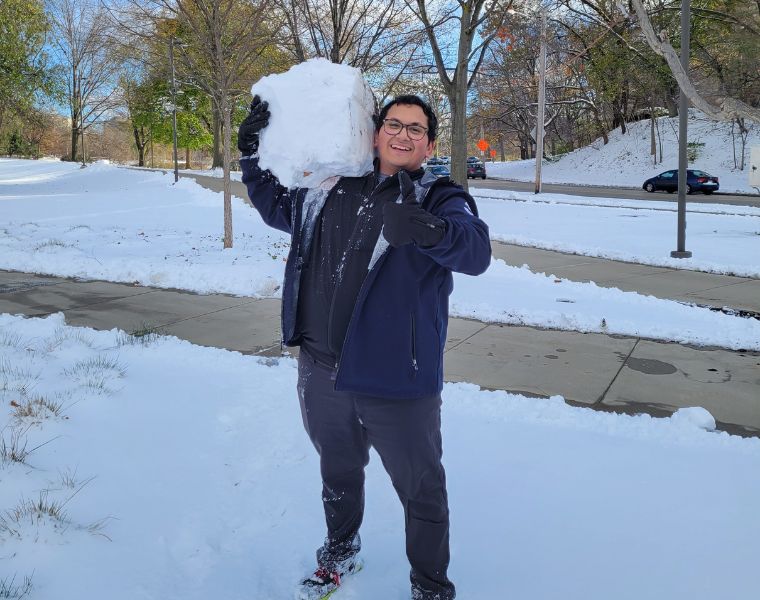When it comes to having a global perspective, Sebastian Saintignon is well versed. His father’s career led Saintignon’s family to live in such varied places as Arizona, Mexico, the Kingdom of Bahrain and California during his childhood, leading him to learn how to be open-minded and comfortable in new environments.
Now a third-year student in civil and environmental engineering at Case Western Reserve University, Saintignon is putting those lessons to work.
For two summers, Saintignon has applied his skills at BioLargo Engineering, an environmental engineering, technology innovation and manufacturing firm, in Oak Ridge, Tennessee. Through this opportunity, Saintignon has directly contributed to several projects, including a concept to turn waste to energy and a technology that effectively removes PFAS compounds from water.
Read about Saintignon’s experiences as an intern and living around the world.
Answers have been lightly edited for clarity and length.
1. What drew you to Case Western Reserve?
A teacher in high school attended the university, and spoke highly of it. That introduced me to the institution. Additionally, my grandfather, who is in medicine, also spoke highly of it. After researching personally, I decided the school could be a great fit. And here I am now, happy as a clam.
2. What interested you in engineering, and civil engineering more specifically?
The application of math and science toward engineering solutions and the betterment of society are what drew me.
I chose to be an environmental engineer because of the pressing issues regarding water and the ubiquitous necessity throughout any level of society. The skills of the civil and environmental engineer allow for water to be used, recycled, retained, and more in intelligent and sustainable ways. The ability to contribute toward this goal motivated me to choose my path.
3. What have been some of your most valuable lessons learned during your internship with BioLargo Engineering?
Even with all the high tech exposures, the most important thing, from an engineering standpoint, is knowing the fundamentals are the key to success. Having a strong foundation of engineering principles [from my CWRU education] means I can apply myself to a wide variety of real-life applications and contribute meaningfully.
From a human perspective, working as part of a team promoting the exchange of ideas maximizes progress and potential. The company has a culture of encouragement and knowledge sharing, which enables me to learn more and grow as an engineer and a young professional. They really take me under their wing and go the extra mile to ensure I am doing good work, even if I am unfamiliar and inexperienced with the topic or project.
4. What was your experience like moving around so much as a child?
Moving around so much as a young child presented its own share of challenges. In particular, keeping friends before the widespread usage of phones was nigh impossible. As a result, my family became my primary unit. I am very close with my parents and brother.
Additionally, all the moving has had a secondary effect of making me very comfortable with being in new locations, even despite vast distances or being away from the familiar. It has also acclimated me well to traveling, but I do look forward to being able to settle down in a more permanent fashion some time in the near future.
5. What did you learn about different cultures and customs through your childhood experiences?
One of the major gifts from my experiences as a child was to see so many different things and learn from a multitude of perspectives. This has taught me to be less rigid in how I think, view, and approach situations, as every person and place has a different manner of adaptation.
As I have matured, I have come to realize that no matter where I am in the world, all societies have positive and negative aspects. Not speaking the language or understanding the nuance of regional practices did not prevent people from reaching out, teaching, or relating with us. Every community and culture in which I have been immersed has taught me that differences do not have to lead to discord. Kindness exists everywhere. The kindness of strangers has alway helped my family manage and adapt to new spaces and new ways of life. Kindness and empathy can transcend any cultural differences and allow for the formation of connections on a fundamental level.

